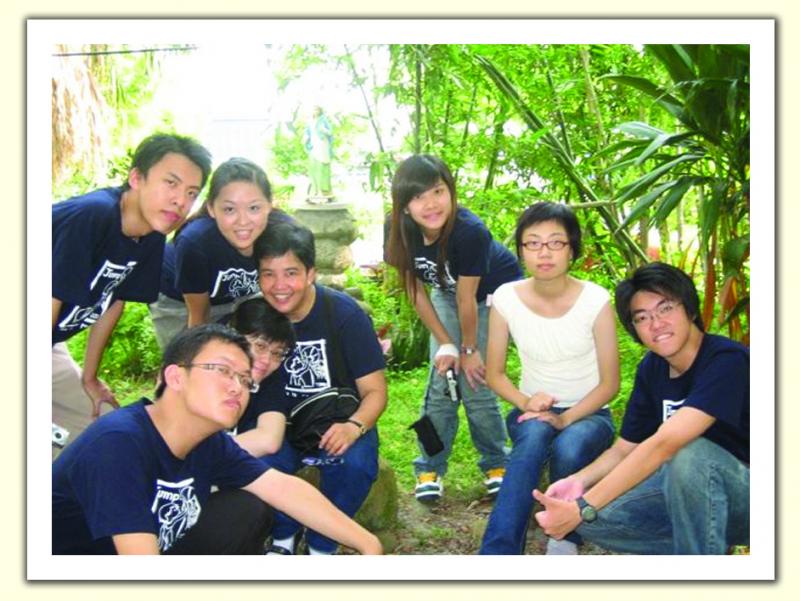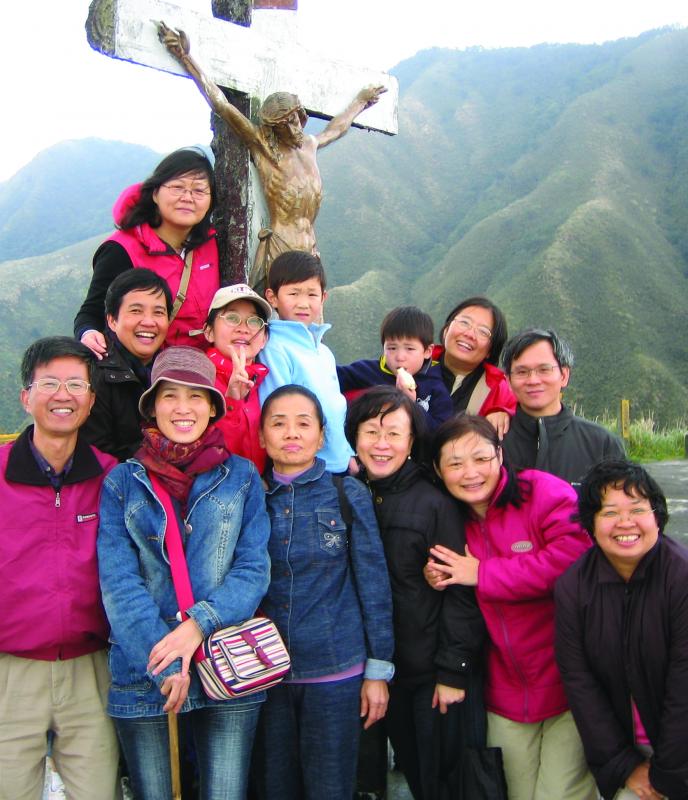Forgiveness And Inner Healing
By Joy Ampiloquio

Peter came up and asked Jesus, ‘Lord, when my brother wrongs me, how often must I forgive him? Seven times?’ ‘No,’ Jesus replied, ‘Not seven times; I say, seventy times seven times’ (Matthew 18:21-22).
Stricken with guilt
There was a release of guilt on her part. Guilt, as defined by the dictionary, is a condition of having done wrong. It is concerned with a deed which has violated certain norms. ‘The violated norms involved in guilt are often, but not always, moral’ (Aaron Ben Ze’ev: The Subtlety of Emotions, p. 498). We feel guilty after doing something which is forbidden and it typically involves some harm to another agent. This student felt guilty and, at some point, thought that her impulsive action was wrong. When people feel guilty, they try to repair what they have done by apologizing, explaining themselves, offering excuses, confessing and making amends.
First, yourself
Stricken with guilt, she made a move, an initiative to go to someone she could trust and unload or release her guilt. I am reminded of another story from the Bible (Luke 15: 11-31) about a prodigal son who realized his wrongdoing after experiencing suffering. He made a move to return back to his father’s embrace. The student came out from my office feeling better and was assured of God’s forgiveness. She had courageously faced her situation by forgiving herself, asking forgiveness from her own father and was accepted back home. A healing of the heart had taken place.
Childlike heart

What is your earliest memory of forgiveness? It is said that ‘Children are certainly much more forgiving than adults’. (Leo Buscaglia, Born for Love, p. 202) Even among peers, children are quick to patch up or reconcile, without holding any grudges against each other. When I was a child, I was stubborn and active which means I was very susceptible to punishment or scolding from my parents, especially my dad. However, I was always quick to admit my wrongdoing, apologize and would feel good about myself. Life then went back to normal and I would still feel loved by my parents.
Hurts of the past
However, when we become grown-ups, it seems more difficult to admit our mistakes or humbly ask for forgiveness from those whom we have offended or to forgive those who have wronged us. Do we ever ask why? Is it because we have wounds or negative memories from the past which are not completely healed? Have we really forgiven our parents for our childhood hurts? Have we forgiven our enemies or friends who have deeply hurt us? Perhaps many of us have forgiven in our minds but only partially in our hearts. Healing comes through the uprooting of negative memories or hurts caused by others in early childhood. Lack of forgiveness on our part affects how we react to future circumstances and relationships.
Forgiveness is a tablet that we must swallow in order to get well. It might not taste good going down, but it begins the healing process.
Barriers to forgiveness
There are many barriers to forgiveness. One of the greatest difficulties is when we don't even realize that we still carry resentment and thus need to forgive. Problems in our current emotional, spiritual and physical lives are good indicators. ‘People almost invariably think they have forgiven when they haven't. And how shall we know? By simple, pure logic according to God's Word. If the problem is still there, forgiveness is incomplete’. (Sanford 1982:101)
Another great barrier to forgiveness is the simple fact, that because the other has caused us so much pain, we don't want to forgive. Sometimes we are afraid to forgive others because it seems to give them the power or permission to hurt us again. But actually the contrary is true. It is when ‘we do not forgive that we continue to give people negative influence over our thoughts, our actions and, as explained above, even our bodies’. (Flynn and Gregg 1993:94)
What forgiveness is and what it is not
Joy Ampiloquio, from Bislig City
Surigao del Sur, and a member of
the Teresian Association, with pilgrims in Taiwan.
It is important to understand what forgiveness is and what it is not. Forgiveness is most basically a release of our anger against someone unto God. ‘When we forgive, we release the one we have been holding something against from our anger, bitterness, resentment and desire for revenge. We do not declare that person ‘not guilty’. Rather, we recognize his or her guilt and give to God our right to pay the person back’. (Kraft 1993:153) Forgiveness is not denying the pain of an event or saying that it was okay for someone to hurt us. ‘Forgiving is not forgetting. Forgiveness does not mean that you must tolerate sin. Forgiveness does not demand revenge or repayment for offenses suffered. Forgiveness means resolving to live with the consequences of another person's sin’. (Anderson 1990:201-2) Forgiveness and the giving up of anger are also not spiritual denial. ‘It requires honest facing of our feelings and admitting that they are there. God requires complete truthfulness. God only heals those who face the facts and give the heavy burden of such feelings to him’. (Kraft 1993:155)
‘You will always be a victim until you forgive.’(Stephen Covey, The Seven Habits of Highly Effective Families, p. 60) You can cleanse your own heart and also remove a major obstacle that keeps others from changing because when you don’t forgive you put yourself between people and their own conscience. Forgiveness comes only when we can identify with others and admit to our own imperfections and an equal capacity for wrongdoing.
Be a healing presence
Go and reconcile with yourself, others and God. Become a ‘wounded healer’. Be a healing presence to others. Many times, you and I would hear: ‘I feel better talking with you; I feel good being with you.’ You and I at many points in our life have stumbled, been wounded and stood up again. We made a choice to heal ourselves and become a healing presence to others.
